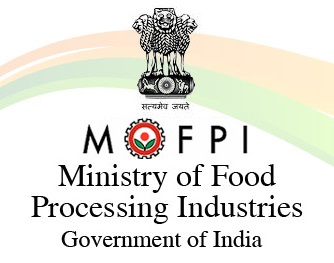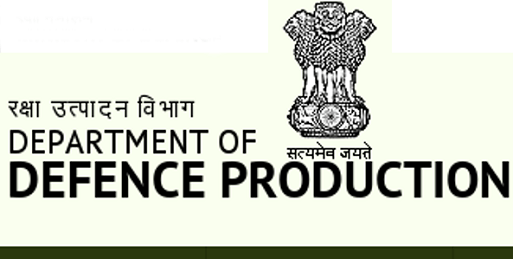The Jan Vishwas (Amendment of Provisions) Bill, 2023 was passed in Lok Sabha on 27th June 2023 and Rajya Sabha on 2nd August 2023.
The Bill was first introduced in Lok Sabha on 22nd December 2022. Subsequently, it was referred to the Joint Committee of the Parliament. The Jan Vishwas (Amendment of Provisions) Bill received overwhelming support and insightful suggestions from the Members of the Committee across parties. The Joint Committee on the Jan Vishwas (Amendment of Provisions) Bill, 2022 held detailed discussions with all the 19 Ministries/Departments along with Legislative Department and Department of Legal Affairs. The Committee conducted clause-by-clause examination of the Bill through a series of 9 sittings between 09.01.2023 and 17.02.2023. The Committee finally adopted its Report in its sitting held on 13.03.2023.
The Report of the Committee was laid before Rajya Sabha and Lok Sabha on 17th March 2023 and 20th March 2023 respectively. The Committee recommended a few more amendments in the Bill. Committee also made 7 general recommendations which provide advice and guidance for future decriminalization efforts. One of the recommendations include constitution of a group consisting of legal professionals, industry bodies, members of bureaucracy and regulatory authorities, etc. to examine other acts and carry out exercise similar to the Jan Vishwas (Amendment of Provisions) Bill, 2023. Working group has been constituted as per the recommendation of the Committee.
Through The Jan Vishwas (Amendment of Provisions) Bill, 2023, a total of 183 provisions are being proposed to be decriminalized in 42 Central Acts administered by 19 Ministries/Departments. Decriminalization is proposed to be achieved in the following manner: –
(i) Both Imprisonment and/or Fine are proposed to be removed in some provisions.
(ii) Imprisonment is proposed to be removed and fine retained in few provisions.
(iii) Imprisonment is proposed to be removed and Fine enhanced in few provisions.
(iv) Imprisonment and Fine are proposed to be converted to Penalty in some provisions.
(v) Compounding of offences is proposed to be introduced in few provisions.
For effective implementation of the above, the bill proposes measures such as (a) pragmatic revision of fines and penalties commensurate to the offence committed; (b) establishment of Adjudicating Officers; (c) establishment of Appellate Authorities; and (d) Periodic increase in quantum of fine and penalties
It is also ensured that degree and nature of punishment is commensurate with the severity of the offence.
The benefits of the Amendment Bill are outlined as under:
1. The Amendment Bill will contribute to rationalizing criminal provisions and ensuring that citizens, businesses and the government departments operate without fear of imprisonment for minor, technical or procedural defaults.
2. The nature of penal consequence of an offence committed should be commensurate with the seriousness of the offence. This bill establishes a balance between the severity of the offence/violation committed and the gravity of the prescribed punishment. The proposed amendments ensure the adherence to law by businesses and citizens, without losing the rigor of the law.
3. The criminal consequences prescribed for technical/procedural lapses and minor defaults, clog the justice delivery system and puts adjudication of serious offences on the back burner. Some of the amendments proposed in the Bill are to introduce suitable administrative adjudication mechanisms, wherever applicable and feasible. This would go a long way in reducing undue pressure on the justice system, reduce the pendency of cases and help in a more efficient and effective justice dispensation.
4. Decriminalization of provisions which affect citizens and certain categories of government employees will help them live without the fear of imprisonment for minor violations.
5. The enactment of this legislation would be a landmark in the journey of rationalizing laws, eliminating barriers and bolstering growth of businesses. This legislation would serve as a guiding principle for future amendments in various laws. Consolidated amendments in various laws with a common objective will save time and cost for both Government and Businesses alike.
Ministry/Department-wise List of 42 Acts
(Covered under The Jan Vishwas (Amendment of Provisions) Bill, 2023)
|
Sl. No. |
Name of the Acts |
Name of Ministries / Departments |
|---|---|---|
|
|
The Agricultural Produce (Grading and Marking) Act, 1937 |
D/o Agriculture, & Farmers Welfare |
|
|
The Marine Products Export Development Authority Act, 1972 |
D/o Commerce |
|
|
The Rubber Act, 1947 |
|
|
|
The Tea Act, 1953 |
|
|
|
The Spices Board Act, 1986 |
|
|
|
The Legal Metrology Act, 2009 |
D/o Consumer Affairs |
|
|
The Cantonments Act 2006 |
D/o Defence |
|
|
The Government Securities Act, 2006 |
D/o Economic Affairs |
|
|
The High Denomination Banknotes (Demonetization) Act, 1978 |
|
|
|
The Public Debt Act, 1944 |
|
|
|
The Aadhaar (Targeted Delivery of Financial and Other Subsidies, Benefits and Services) Act, 2016 |
M/o Electronics and Information Technology |
|
|
The Information Technology Act, 2000 |
|
|
|
The Air (Prevention and Control of Pollution) Act, 1981 |
M/o Environment, Forest and Climate Change |
|
|
The Environment Protection Act, 1986 |
|
|
|
The Indian Forest Act, 1927 |
|
|
|
The Public Liability Insurance Act, 19941 |
|
|
|
The Deposit Insurance and Credit Guarantee Corporation Act, 1961 |
D/o Financial Services |
|
|
The Factoring Regulation Act, 2011 |
|
|
|
The National Bank for Agriculture and Rural Development Act, 1981 |
|
|
|
The National Housing Bank Act, 1987 |
|
|
|
The Payment and Settlement Systems Act, 2007 |
|
|
|
The Food Corporations Act, 1964 |
D/o Food & Public Distribution |
|
|
The Warehousing Corporation Act, 1962 |
|
|
|
The Drugs and Cosmetics Act, 1940 |
D/o Health & Family Welfare |
|
|
The Food Safety and Standards Act, 2006 |
|
|
|
The Pharmacy Act, 1948 |
|
|
|
The Metro Railways (Operation and Maintenance) Act, 2002 |
M/o Housing & Urban Affairs |
|
|
The Press and Registration of Books Act, 1867 |
M/o Information & Broadcasting |
|
|
The Cinematography Act, 1952 |
|
|
|
The Cable Television Networks (Regulation) Act, 1995 |
|
|
|
The Merchant Shipping Act, 1958 |
M/o Ports, Shipping & Waterways |
|
|
The Indian Post Office Act, 1898 |
D/o Posts |
|
|
The Boilers Act, 1923 |
Department for Promotion of Industry & Internal Trade |
|
|
The Copyright Act, 1957 |
|
|
|
The Geographical Indications of Goods Act, 1999 |
|
|
|
The Industries (Development and Regulation) Act, 1951 |
|
|
|
The Patents Act, 1970 |
|
|
|
The Trade Marks Act, 1999 |
|
|
|
The Railways Act, 1989 |
M/o Railways |
|
|
The Motor Vehicles Act, 1988 |
M/o Road Transport & Highways |
|
|
The Prevention of Money-laundering Act, 2002 |
D/o Revenue |
|
|
The Collection of Statistics Act, 2008 |
M/o Statistics & Programme Implementation |
Illustrative examples of amendments carried out-
-
The Indian Post Office Act, 1898
-
23 Sections related to misconduct, voluntary withdrawal from duty, making false entry in register, defiling or injuring post office letter boxes, etc. are proposed to be omitted. These provisions relate to default by postal employees, other postal workers, employees of other agencies and other individuals. Provisions for appropriate action against such defaulting employees, workers and other individuals can effectively be taken under various Acts and Rules including CCS (CCA) Rules, 1965 or GDS (Conduct and Engagement) Rules, 2020, the Indian Contract Act, 1872 and the Indian Penal Code, 1860.
-
-
Indian Forest Act, 1927
-
This act (Section 26 (1) (d)) had Imprisonment provision for pasturing cattle in Forest land. This provision is being amended by removing imprisonment and fine. Now this contravention will attract penalty. This amendment will benefit tribals/villagers who may unknowingly enter forest land while pasturing cattle. Since the violation is not serious in nature and may not be intentional, imprisonment provisions were not justified. However, deterrence is proposed to be achieved by levying penalty of Rs. 500/-
-
-
The Food Corporations Act, 1964 & The Warehousing Corporations Act, 1962
-
These acts provide imprisonment and fine for using the name of Food/warehouse Corporation without Corporation’s consent. Imprisonment (up to 6 months) and fine (₹1,000) is proposed to be removed for the use of Food/Warehouse Corporation’s name in any prospectus or advertisement without Corporation’s consent
-
-
The Cantonments Act, 2006
-
This act (Section 289 (5)) had imprisonment provisions for carrying or using non-biodegradable nature-polythene bags in cantonment area. This provision is being removed as most of the times, citizens using polyethene bags may not be aware about them being bio-degradable or not.
-
-
Legal Metrology Act, 2009
-
Giving false information to legal metrology officer, controller or director (Legal Metrology Act, 2009) is proposed to be made compoundable (Section 48)
-
-
Motor Vehicles Act, 1988
-
Contraventions related to driving regulations, obstructing to free flow of traffic and producing false registration document (Motor Vehicles Act, 1988) are proposed to be made compoundable (Section 200 (1)).
-
-
Collection of Statistics Act, 2009
-
This act facilitates collection of statistics on economic, demographic, social, scientific, environmental aspects. This act had imprisonment provisions for Minor procedural offenses like failure to produce books, accounts, documents, or records, making any false or misleading statement or information, destroying, defacing, removing, or mutilating any information. Violations of provisions of this act are not severe in nature and do not cause any damage. These criminal provisions are being removed from the Act now.
-





